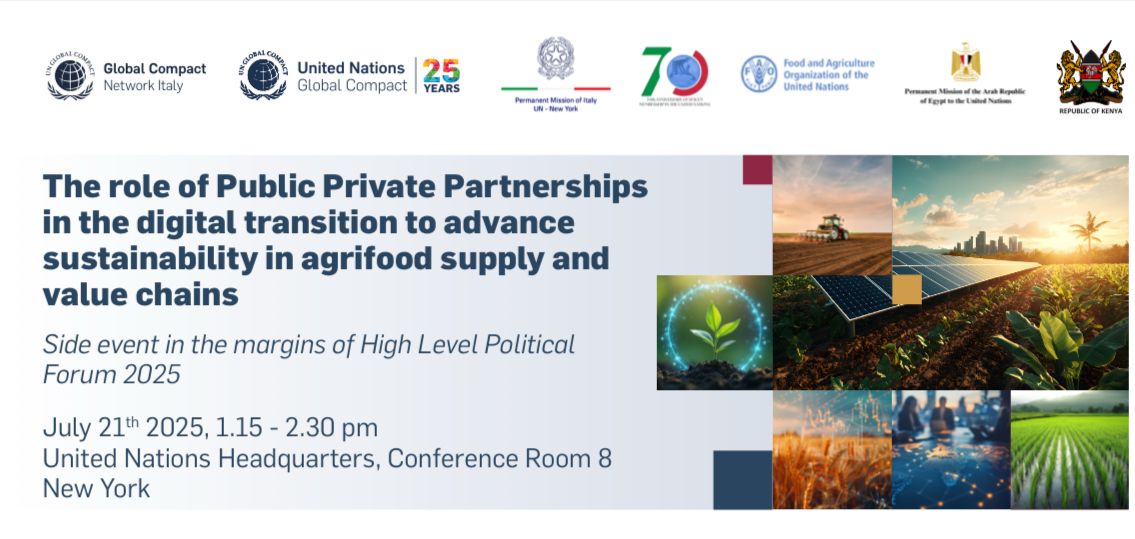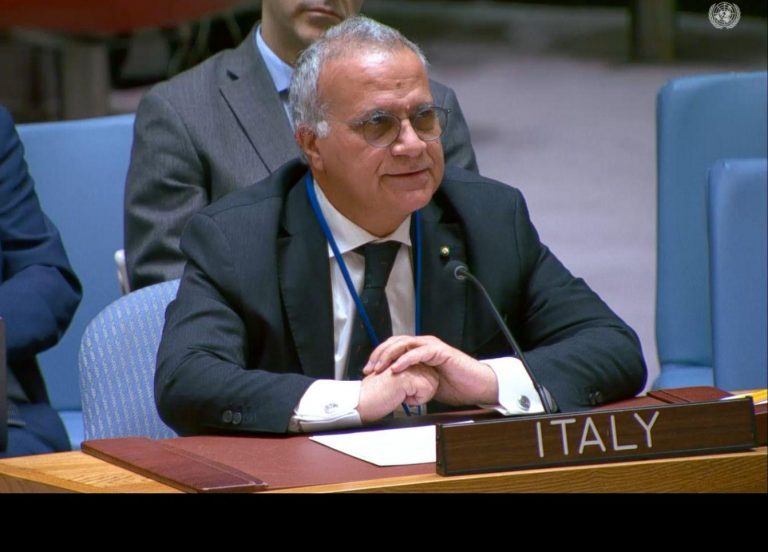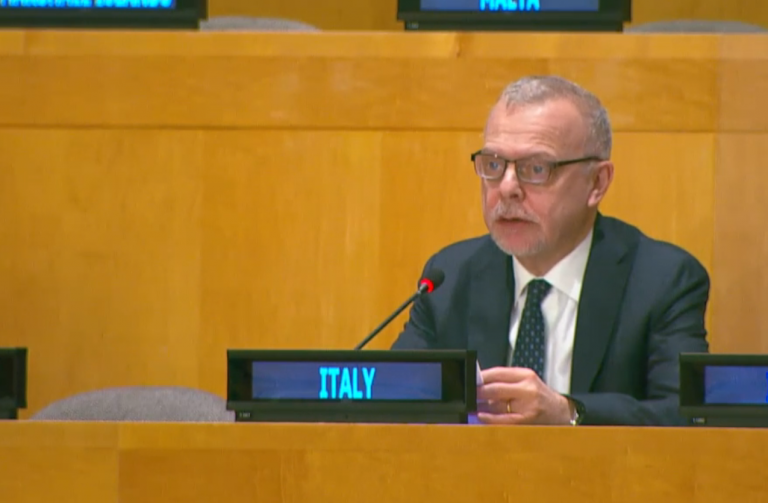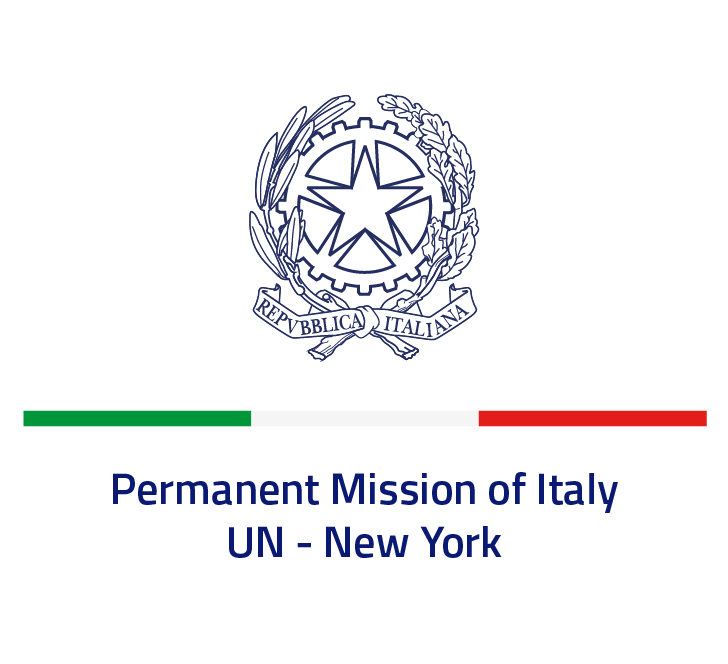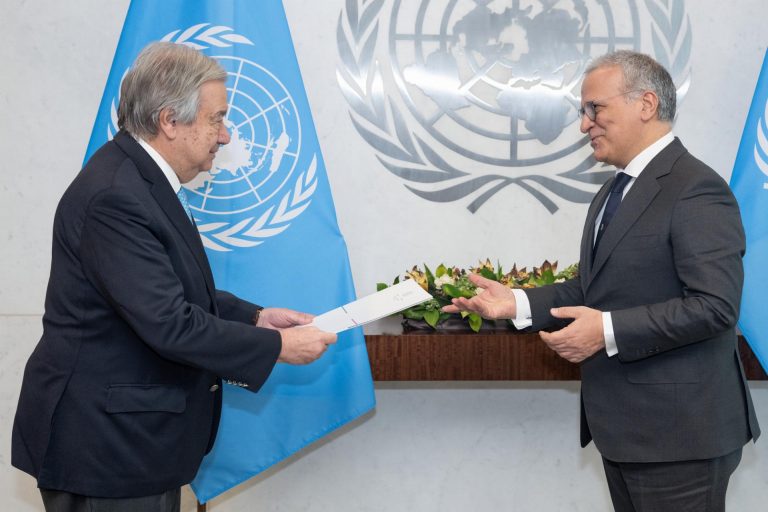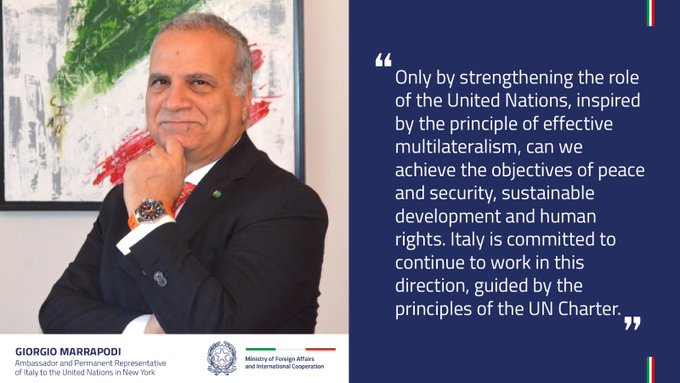Today at the United Nations Headquarters, Italy along with Egypt and Kenya, in collaboration with FAO and the United Nations Global Compact, held a meeting dedicated to the theme of public-private partnerships in the digital transition towards the sustainability of agro-food supply chains. The discussion, moderated by Italy’s Permanent Representative, Ambassador Maurizio Massari, saw the institutional participation of the Under-Secretary of State of the Ministry of Environment and Energy Security, Sen. Claudio Barbaro, as well as of the Permanent Representatives of Kenya and Egypt, and officials from FAO, UNIDO, the Global Compact, and the United Nations Secretariat. A dynamic and engaging discussion highlighted the contribution of the private sector, which, through collaboration with governments and its commitments to social and environmental responsibility within the UN framework, is becoming an increasingly vital partner in achieving the goals of the 2030 Agenda. This is especially true when it comes to the digitalization and innovation of fundamental supply chains for human development, such as the agri-food sector. This role was highlighted by the interventions of Andrea Illy from Illycaffé, Kamel Abdallah from Canal Sugar, Mario Cerutti from Lavazza, and Nushin Ghassmi from Industrial Promotion Services – companies that place sustainable development and the digitalization of production processes at the center of their production strategies.
It is a collaborative approach that has also been embraced by Italy, which, in the words of Under-Secretary Barbaro, “works together with FAO, IFAD, and the United Nations system to promote responsible digitalization and digital public goods, as well as to promote the digital transformation of agriculture to ensure that technology reaches those who need it most.” Moreover, he added, “we firmly believe that public-private partnerships and international cooperation are essential to promoting an inclusive digital transformation. Through our development cooperation programs and partnerships with the African Union and Mediterranean countries, we are investing in digital literacy, rural connectivity, and innovation ecosystems. We are committed to ensuring that small farmers, indigenous peoples, and marginalized communities are not left behind but are enabled to co-design and co-own digital solutions.”
The digitalization of the agricultural sector is one of the many themes that will be brought to the attention of the international community in Addis Ababa from July 27 to 29 during the second “United Nations Food Systems Summit Stock-take,” co-organized by Ethiopia and Italy to accelerate the transformation of food systems globally through international cooperation, finance, and a relaunch of investments.







